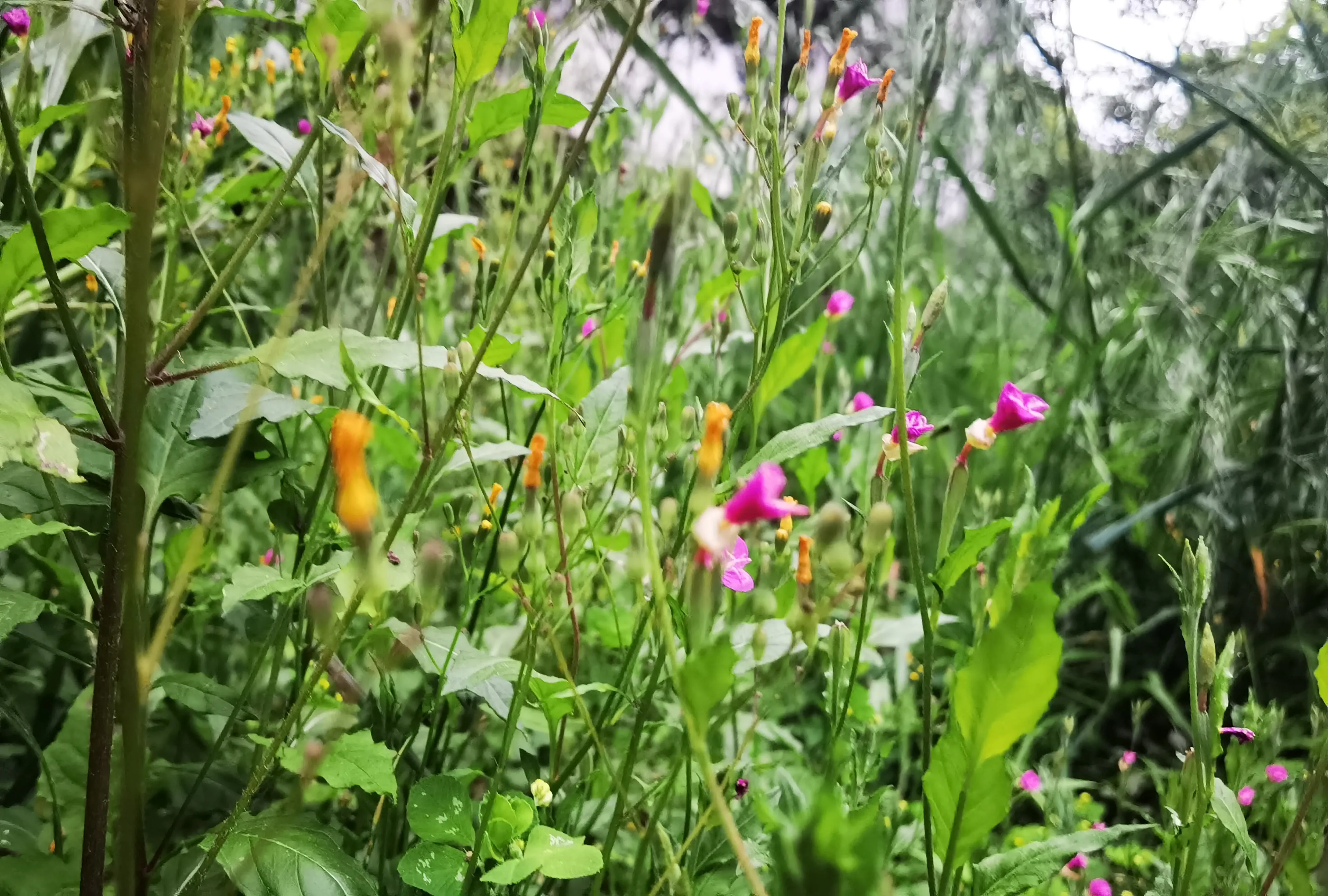An ancient poem a day
【Gift to Insider】
【Tang】 Zhang Hu
The Forbidden Gate Palace tree has been marked by the moon, and the eyes are only looking at the heron.
Obliquely pull out the shadow of the jade lamp, and remove the red flame to save the moth.
【Analysis】
This is a palace complaint poem, but the poet is ingenious and crazy, not falling behind, neither describing their desolate and lonely lives in a positive way, nor directly telling their melancholy grievances, only from the two rather delicate actions of a person under the moon and by the lamp, reflecting her encounters, situations and moods, and profoundly showing the inner world of a palace girl.
The first sentence of the poem, "The Forbidden Gate Palace Tree Marks the Moon", at first glance is an ordinary sentence of writing scenes, but the poet has taken a lot of thought in the use of words. The shadow of the moon first shot at the palace gate, and then crossed the palace gate; Then projected onto the tree in the palace, and then over the palace tree; Finally projected into the palace maid's room.
The "Forbidden Gate Palace Tree" points out the location, but the door is known as the "Forbidden Gate", and the tree is known as the "Palace Tree", which sets off the atmosphere of the environment where the palace is strictly forbidden and the heavy door is deeply closed. "Moon marks", point out the time, it is late at night. However, the "traces of the moon" give people a sense of darkness and obscurity, and then a "pass" word, which has a deeper meaning, not only implies that the person under the moon who is about to appear has been staring at it for a long time in the midst of boredom, but also hints at the vanity of this person's youth from the passage of time.
The second sentence, "Wink at the heron", closely follows the view of the moon passing through the treetops by the forbidden gate written in the previous sentence, leading to the people on the ground who look up at the scenery. "Winking" shows that the person looking at the scene is a woman, and it is a beautiful girl, but poor this beautiful girl, with bright eyes, can not see the world outside the forbidden door.
What was she looking at at the moment in the moonlight? It turned out that I was looking at the nest of the heron, not only to see, but also to "see". This is because, in the palace confinement like a prison, the environment is so monotonous that there is really nothing to see, and she has no choice but to look at the heron high above the palace tree; It may also be because there are many things to see around her, and only the herons in the treetops are full of life, so they attract her attention.
She is deeply aware of her loneliness, far less than the swallow that flies in both places, a pair of flattering eyes, full of desire for freedom, a longing for happiness.
The second half of the poem shifts the depiction of the characters from static to dynamic. Shifting the camera from the outdoors to the interior, from the treetops in the palace to the indoor light, a close-up view of a diagonally plucked jade and rescued moths appeared.
"Obliquely pull out the shadow of the jade lamp, and remove the red flame to save the moth." It is an extremely delicate brushstroke depicting an extremely graceful female movement of the person in the poem, showing the style of this young girl. At this moment, she suddenly saw a moth, pounced on the flame of the lamp, and saw that this ignorant little life was about to destroy itself due to the pursuit of illusory light, so she quickly pulled off the jade noodle that was obliquely inserted on her head and rescued the moth that had been wrapped in the tongue of fire.
Isn't this moth's experience her own? When she entered the palace, she might think that she had ascended to heaven and had an infinitely bright future; After entering the palace, I realized that I had fallen into hell, and the future was boundless darkness. But the moth still has her to save, and who will she save?
The poet's psalms are only objectively described, but the tragic fate and painful soul of this female slave have been shown with great vividness and accuracy from the two concrete actions of her gaze at the swallow and the rescue of the moth. It embodies the noble humanitarian spirit of the author, but also reflects the author's exquisite artistic skills.
The poet writes about the insider's sympathy for the fire-fighting moth, in essence, his sympathy for the thousands of moth-like palace women.
